Last Updated on March 9, 2021 by
Table of Contents
Sustainable Travel Tips
The world is reeling under the pressure of over-tourism. A destination unheard of suddenly makes it to the ‘bucket list’ of a few thousands of travelers. Flights are born to fly those travelers there and social media bursts with travelers and influencers posting about it. Overtourism has increased so much, it was shortlisted as a Word of the Year in 2018. Maybe the pandemic was born to relax the overtourism? (but that is a debate for another day).
With more and more people getting hooked to travelling almost frequently, it is important to be aware of sustainable travel and how easy it is to practice. In this sustainable travel blog, I already cover sustainable travel tips at the end of every post which is specific to each place I have visited. In this post, I am summing travelling sustainably and how each one of us can be a sustainable traveler.
But for those who don’t know yet, let us address the big question.
What is Sustainable Travel or What is Sustainable Tourism?
Sustainable travel means finding a way that tourism can be maintained long-term without harming natural and cultural environments. Sustainable travel should minimise the negative impacts of tourism and ideally be beneficial to the area in which it takes place.
Let us go over some sustainable travel tips to become a responsible traveler.
Sustainable Transport
The mode of travel is probably the first thing one thinks of while planning a trip. Depending upon the destination and distance one decides to use the train, bus or flight.
Did you know the flight’s takeoffs and landings create most of an airplane’s carbon emissions?
That is why overland travel is the best option.
Overland travel or Overlanding
Historically, “Overlanding” is an Australian term to denote the droving of livestock over very long distances to open up new country or to take livestock to market far from grazing grounds. But in modern times it relates to traveling on land, covering a long distance, wherein the journey is more important than the destination.
Modes of Overland travel include
Railways: Railways are however the best ways to travel comfortably within a country. They are safe, affordable and give you a good chance to have fun on the run. You can also catch up on that much-needed sleep. This is by far the best way of sustainable travel.
Roadways: Overlanding is also thankfully becoming more popular using campervans or private cars and it is better for the environment than flights.
Public transport: Buses, metro, sky trains, trams, trains are the best means of public transport which are time-saving and extremely ethical to the place of travel. Also, let’s face it, it saves a ton of money and you can get from one place to another in a quarter of the cost if you ride a vehicle or hire a cab. Plus you can catch up some sleep, listen to music or read up a blog while commuting.
Walk/Bicycle: Even better for the environment is exploring the new area on foot or by bicycle. While many Europeans countries use bicycles as their everyday means of transport, as visitors we can at least do our bit to rent them.
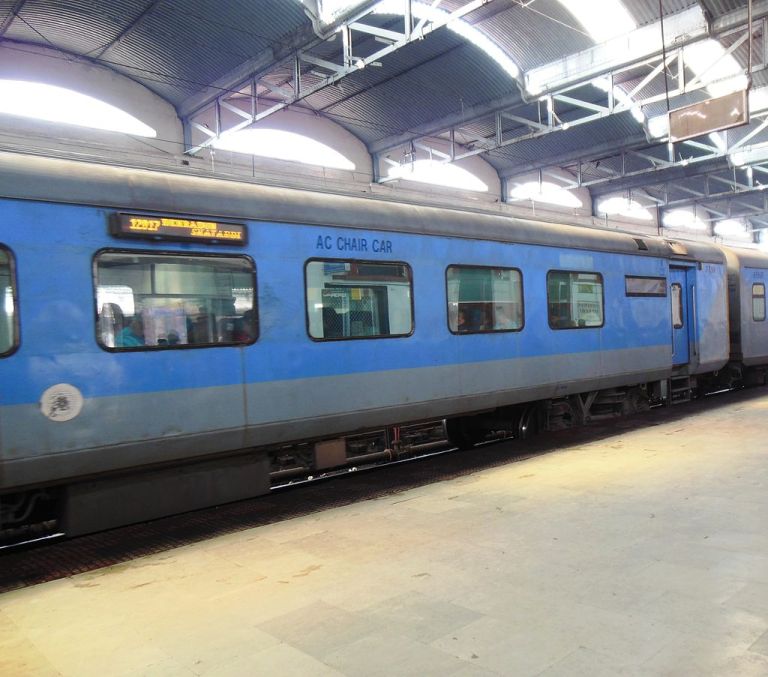
Sustainable Travel Products/ Eco-products
As zero waste living is slowly picking up as a lifestyle choice, it is important to start off somewhere with small changes during travel. Here are some great options.
Reusable bottles
In developing counties, the water available at water ports is generally filtered and fit for drinking. In developed countries, tap water is the best choice. Gone are the days when you would have to buy a PET mineral water bottle while traveling. With an estimated 91 per cent of plastic going unrecycled, it’s better for the environment if travelers cut out the usage of plastic altogether.
You will find water filters almost at all tourism locations across Asia and it is highly recommended to carry your own bottle everywhere.
Refilling water is now considered cool and saves a lot of money and is environmentally safe. Sustainable Tourism in Luang Prabang is one such inspiring example of taking sustainability too seriously especially for tourist towns.
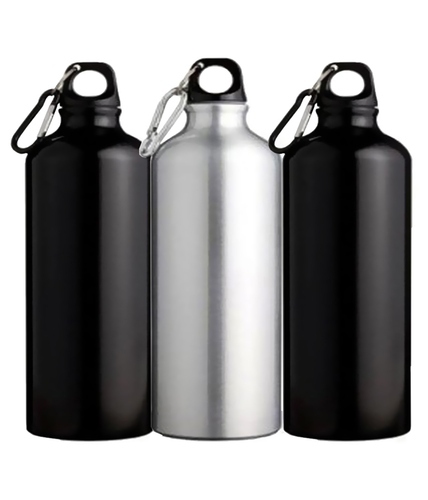
Ecofriendly Toiletries
Wooden toothbrushes, chewable toothpaste, bath bars, shampoo bars, organic detergents, wooden combs. The list is unending. There has been a revolution in terms of eco-friendly toiletries not just for the travel community but for regular usage. And if you haven’t taken the ride on this yet, it is high time to switch.
Since we are on the topic of sustainable toiletries, it is important to mention the use of water instead of tissue paper! I just had to say this. Worldwide, the equivalent of almost 27,000 trees is either flushed or dumped in landfills which can be attributable to toilet paper.
Menstrual cups
When the PMS has to strike it will strike. It doesn’t matter whether you’re chasing waterfalls in Laos or admiring the tulips in Netherlands or camping in Rishikesh. Menstrual cups are emerging as the most eco-friendly solution as against disposing of tampons or sanitary pads which may take years for decomposition.

No packaging shampoo and soap bars
Liquid shampoos and soaps are harmful to the environment as they need the plastic packaging to fill them. Post usage they are chucked in the trash cans and on to the landfill site. A few of them may get recycled but most end up rotting in the landfill for years or sometimes in the ocean bed.
Packaging shampoo in a glass or metal bottle doesn’t make sense to a recycling a glass bottle is an extremely energy-intensive process. However, there are a few companies which allow you to return your bottles for cleaning and refilling. This means you buy a product from them and can return your empty when purchasing a new one. You don’t actually refill the container yourself, the company takes it away, cleans it, and refills on the production line. But I feel that also puts a burden of cleaning it.
The best option for this is switching to shampoo bars and soap bars. They either come in paper packaging or jute packaging and do not harm the environment.
Another organic shampoo is using of Aritha, also known as soap nut from India. According to Ayurveda, the nut has benefits for healthy hair and scalp, and been used for centuries as an anti-hair loss shampoo. You can make soap nut shampoo, even at home.
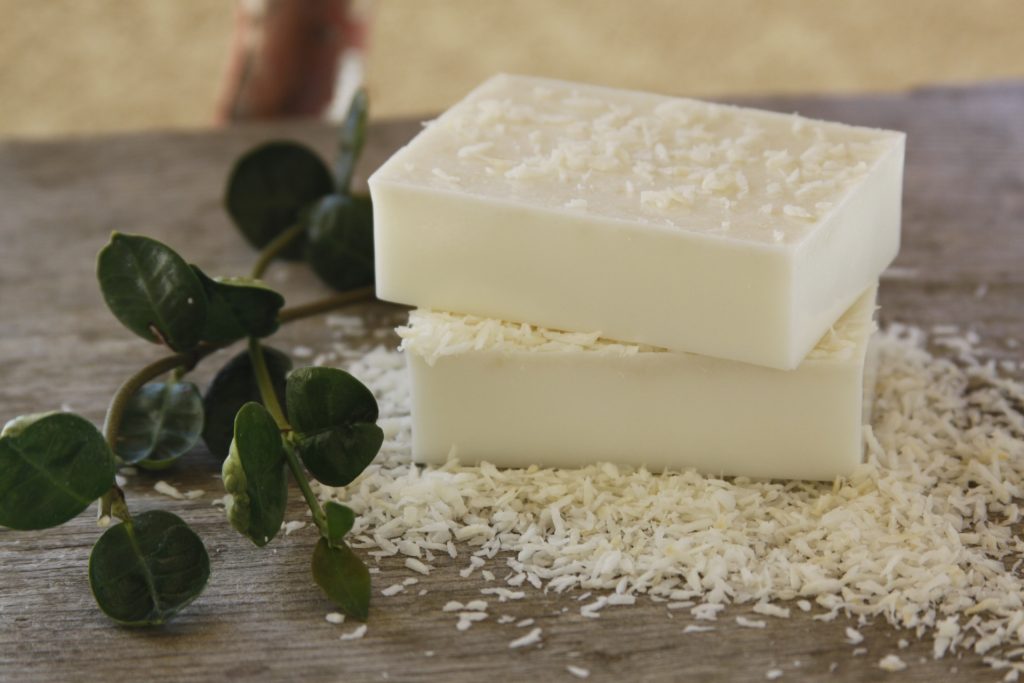
Ecofriendly cutlery
As a kid when I used to travel, I remember my mom used to pack spillable food in stainless steel containers and others would be neatly wrapped in a newspaper. Over time, I noticed people shifting to styrofoam plates, use and throw containers, plastic cutlery, basically, something you throw and don’t need to wash or take care of after the eating business.
This has harmed the planet in more ways than one!
Ecofriendly cutlery is the way ahead. From wonderfully flavorful edible spoons to arboreal eating utensils, from compostable cutlery made with Corn Starch to affordable bamboo cutlery, there are many eco-friendly cutlery options to chose from – perfect as the sustainable travel tips. They are high on utility especially while camping or traveling to remote places.
I personally carry a stainless steel cutlery pouch as I do not believe in disposing of anything even if it ecofriendly with alternative options. My pouch has a fork, spoon, straw which can be used anywhere – especially for street food.
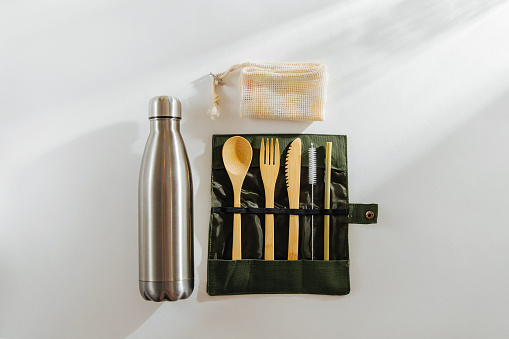
Sustainable Accommodation
People often forget the importance of choosing sustainable accommodation while traveling. While it is the choice of most people, my personal preference and recommendation are to go for a local homestay.
Homestays and AirBnBs
Homestays are a wonderful way to know the foreign land in a local way, staying with a local family. The interactions you will have with the family eating local food will carve a beautiful memory of your stay in a foreign locale. This helps a local family to earn some money and you save some!
Housesitting or Couchsurfing
If you plan to stay for an extended period of time in a place, housesitting or Couchsurfing is one the most practical and sustainable travel tips. Housesitting is what a volunteer does when someone asks them to live in their home while they are away on holiday or travelling. Housesitting could be caring for the house, for pets or for the plants of the host. While you may not know the host in this way, you are living in a home away from home!
Luxury and Sustainability
While homestays are a perfect option, sustainability is not limited and there are many luxurious properties which believe in responsible tourism. Properties like Amari Residences, Bangkok and Luang Say Residence, Luang Prabang have made sustainability a part of their regime and even attract tourists with their ethics.
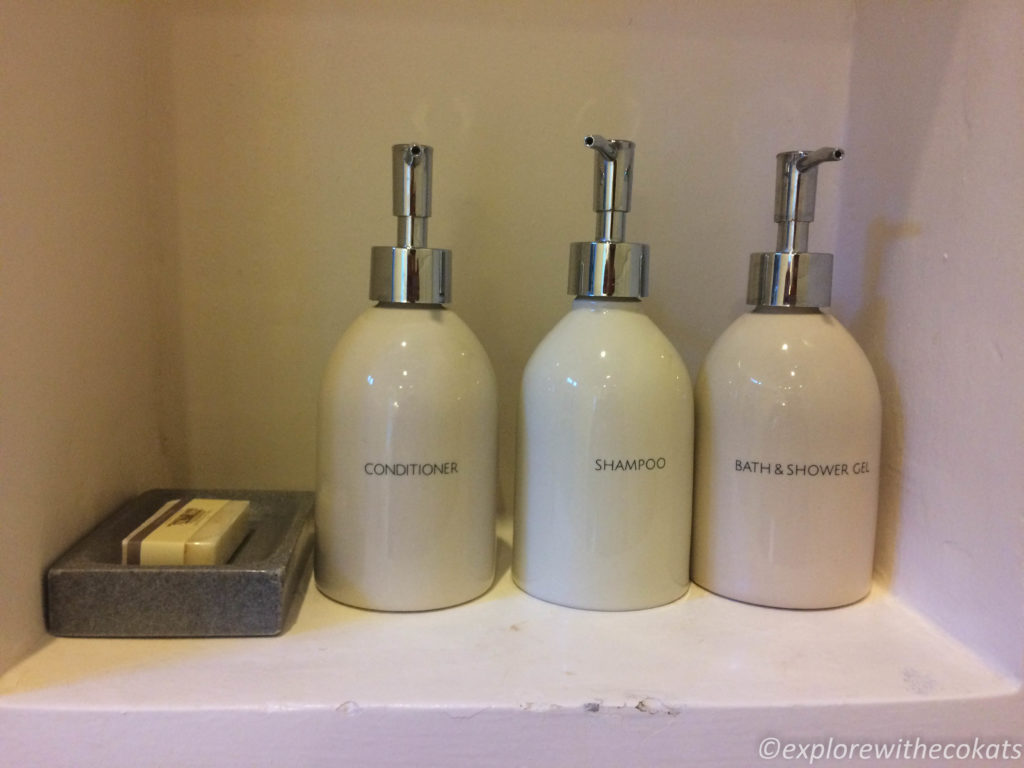
Pack Light, Pack responsibly
Give a break to yourself from lugging around the heavy bags. Did you know the heavier the luggage, the more fuel needed in the flight? I know it may become difficult to do so while visiting a cold country and posing in the same clothes for photographs but one can always be creative to mix and match clothes to make it look different. Also, why not try local shampoo and soap rather than carrying it all the way?
I always thought it is not possible to carry for a trip in a backpack, but trust me it not as difficult.
It is also good to be informed about the ingredients of your favorite products. Avoid packing and using shampoo, toothpaste and face packs with microbeads. Try using biodegradable organic products and ensure you leave the place clean for future visitors.
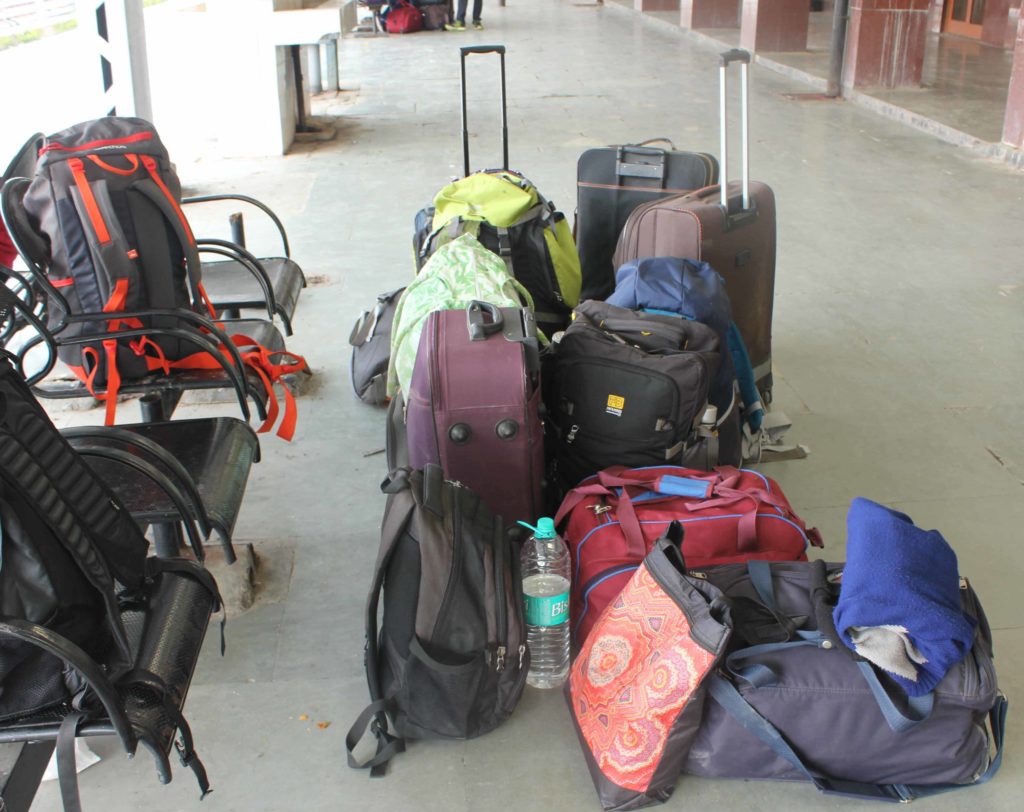
Say no to souvenirs from nature
I hear so many people say they pick up something from nature instead of manmade souvenirs to keep the memory alive.
BUT.. You have got it all wrong!
Don’t collect stones, shells or sand. It may be a souvenir for you but when you gift it/share its photo with others you are indirectly implying them to collect when they go. Yes, believe it or not, it does leave a little impact.
Remember this tagline? – It’s only one straw, said 1 billion people.
Well collecting souvenirs from nature is something similar.
Instead, shop something local!
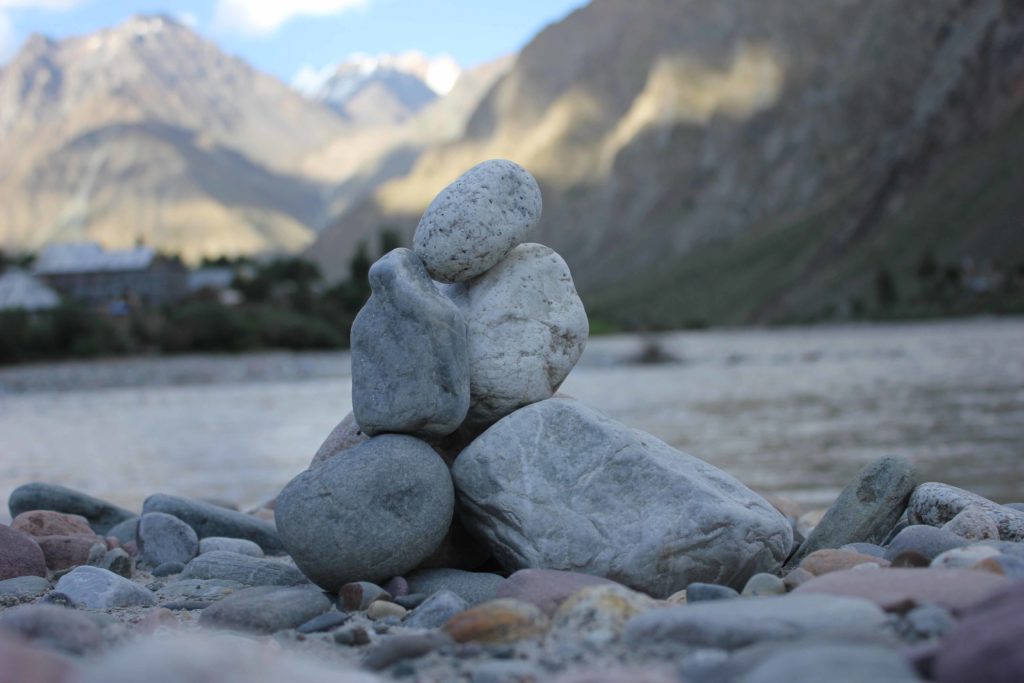
Shop Local
Whether it is Ao Dai from Vietnam, A block printed saree from India, or a Kimono from Japan, shopping local products support local economies which also means encouraging traditional artists and craftsmen to continue their creativity. That’s a souvenir you must take back home!
If you are a backpacker and do not want to invest in clothes and prints, there are always edible souvenirs to carry with you – tea, coffee, snacks, chocolates, not that’s what I call a yummy souvenir.
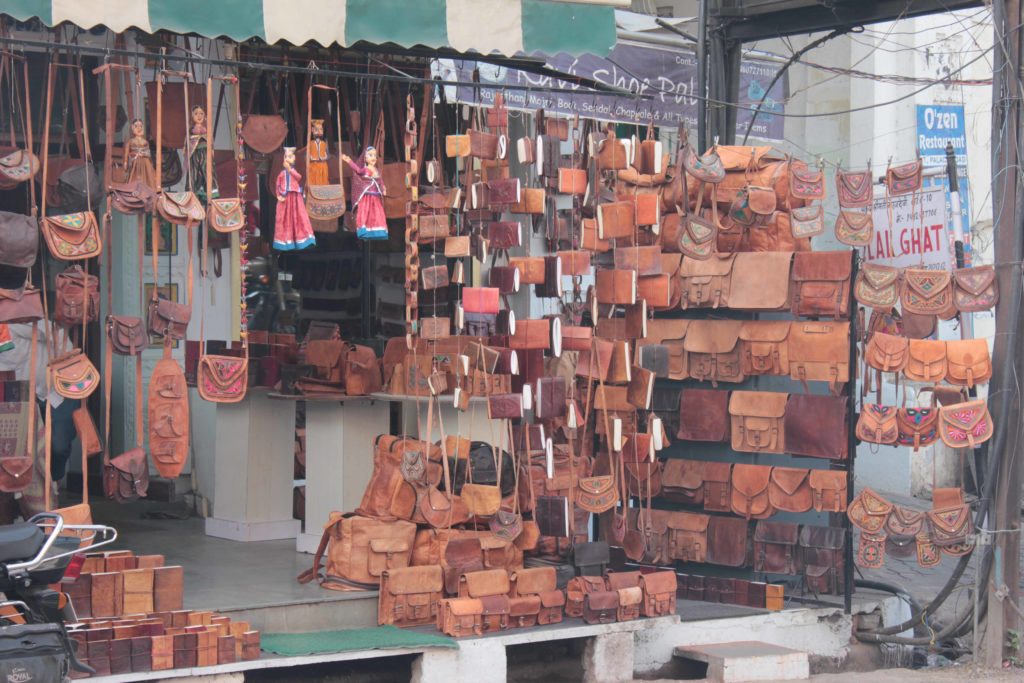
Volunteering as a way of travel
Volunteering is the best way to enjoy like a local and earn some money (or not). Not to forget the amazing experience you’ll have for the lifetime for helping a community get water tap or roof for their house or biodiversity restoration or teaching kids in remote areas with no school. I have volunteered at Triund with an NGO in Himachal Pradesh in India.
Give your electronics the much-required break
In the world when we are so obsessed with checking into every place we visit and snapchatting our journey and sharing what we ate on instagram, we are putting away our loved ones with whom we are traveling. If you’re traveling alone and need pictures for the blog/social media put them away till you are back home. Save energy by switching off the devices.
Turn off all electronic appliances when you leave your hotel room (except the refrigerator)
Hotels use huge amounts of electricity to make their property look beautiful. Let’s be responsible travelers and turn off the air conditioning, lights and fans on the way out of our room.

Choosing Eco trips, Wildlife trips, Nature camping
After the last few years, I have been consciously choosing my vacations to places which are close to nature. Being a wildlife enthusiast and nature lover, it acts as a major detox for me, which helps me unwind! Try it, you will love it too!
Thankfully, there are many such tours happening across the world, which helps you connect with nature.
If you love wildlife trips, remember
Do not feed wild animals!
This includes monkeys, cows, birds in urban areas (yes, we have them all in developing countries) yes, in the city. Feeding animals makes them habituated to the food (example: pigeon menace across the world) and they do not put efforts to find food for themselves which nature has designed them to do. Leaving food in the zoo, national park or any sanctuary is a strict no-no!

Sustainable Gadgets
Solar chargers and sustainable laundry bags are some of the most responsible way of traveling if you are a frequent traveler.
Solar chargers are available in all shapes and sizes, depending on the use and be installed on a campervan or carried in your bag. The Grouphug Designer Window Solar Charger has a bamboo frame which sticks using a suction cup and has a built-in rechargeable 3,400-mAh battery that absorbs power throughout the day and night. As a result, it lets you charge your iPhone up to two times and an Android phone 1.5 times.
There are laundry bags and portable machines which wash clothes vigorously and effectively without electricity. Simply fill it with your clothes, add detergent and water, then tap it with your foot or shake the bag. It’ll reduce carbon use and save you money on electricity and water.
Also, check out these really cool Sustainable Travel Apps.
I hope these Sustainable Travel Tips have inspired you to travel responsibly? Do you follow any of these? Or do you do something which I have not mentioned here? Let me know in the comments below!
Disclaimer: This post contains affiliate links. Read about my Privacy Policy to know more.
Pin this post!
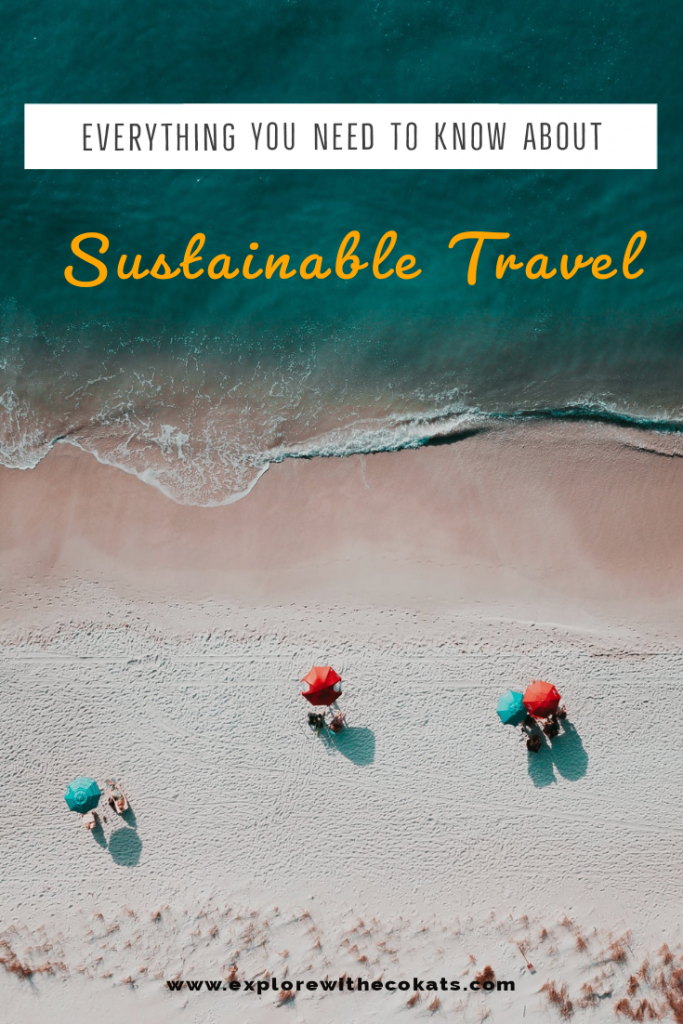
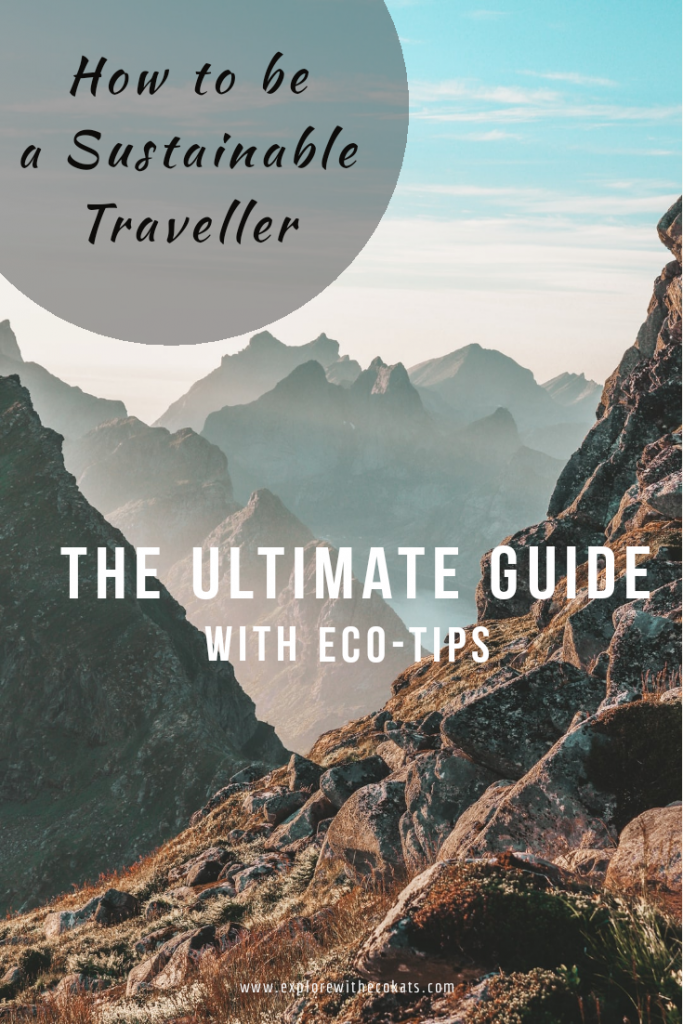
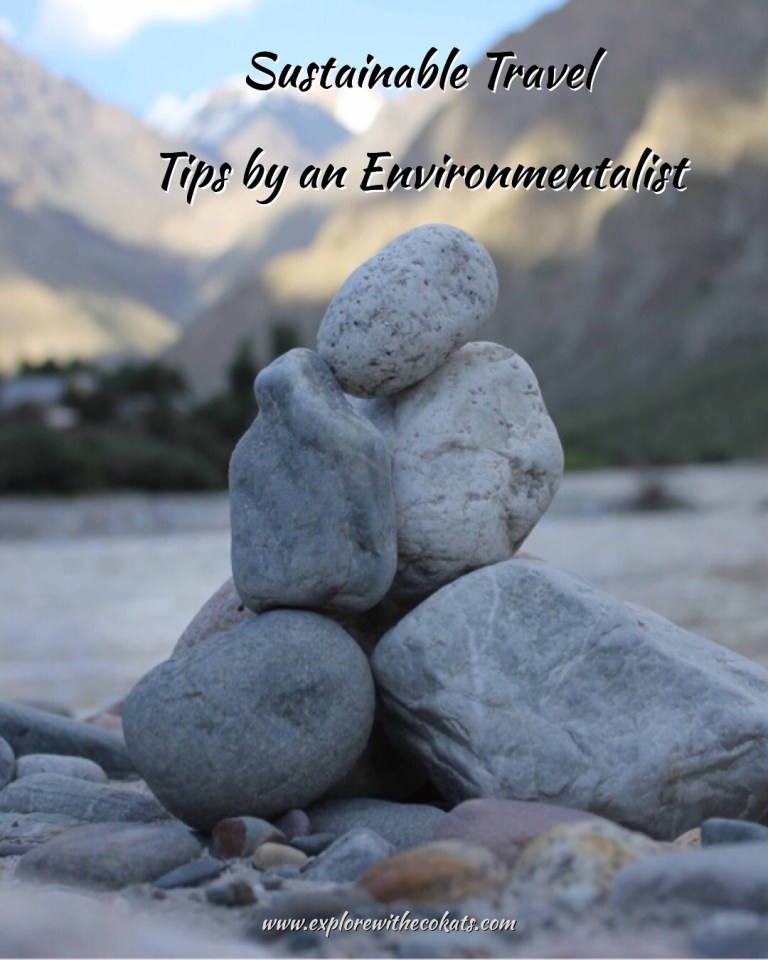

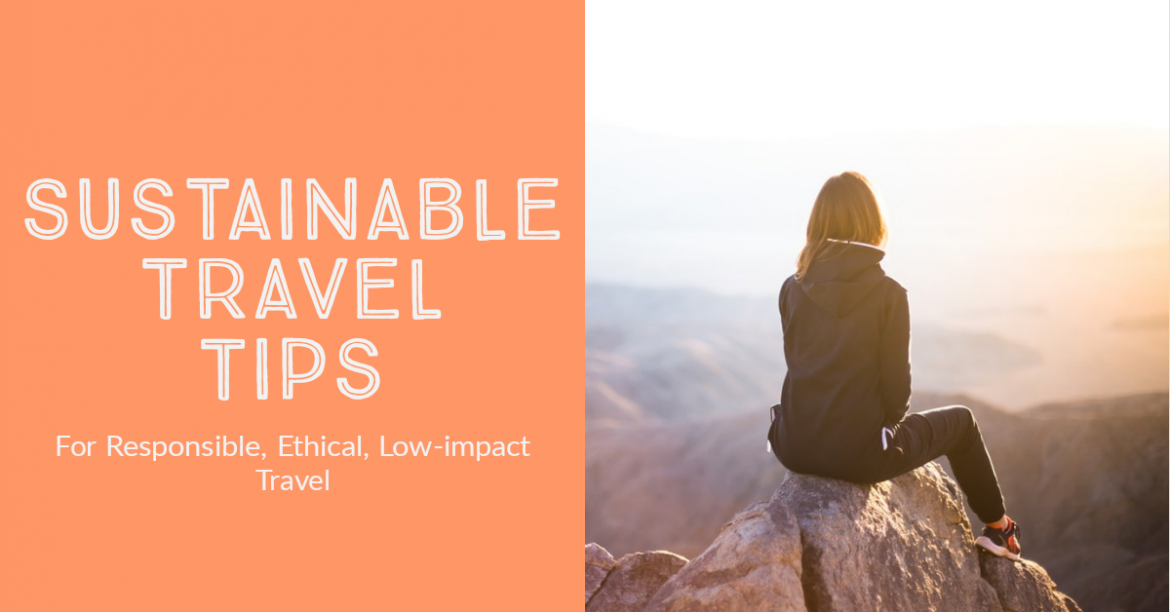
10 comments
Love this sustainability post and your suggestions! I’m trying to lower my carbon footprint and focus more on sustainability – both during my travels and day to day life 🙂
That’s amazing to know. I am trying to avoid plastic packaging as much as possible. It is difficult but I will get there.
Great tips! I bring my reusable straw with me everywhere and I love the idea of reducing packaged toiletries. These are great things to implement in our daily life as well as when we travel!
Yes, it’s hard to imagine how much we throw out and how much we can refuse and reduce. Great going with the straw though.
Great post, Ketki. I think travellers can balance their activities to counteract carbon-heavy activities. I live on an island so need to take a flight in order to travel internationally. However, I use public transport as much as possible when I arrive at my destination.
That is fantastic to know Hazel. Being 100% sustainable is difficult but at least we should try wherever we can.
This is a really useful post. I confess that I am not the most sustainable traveller at times. I try to be, but it’s amazing how used we are to convenience, isn’t it? Posts like this are good to remind people like me to be better. Thank you for putting this together.
I am glad to know that this post is making you think. Being aware is the first step towards sustainability.
Great tips! Thank you so much for the information and recommendations. Love it!
Thank you for your kind words Ann 🙂